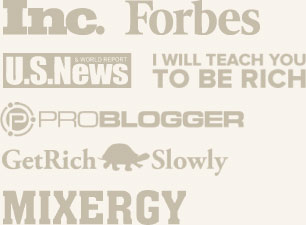The REAL American Dream (Hint: It's NOT Owning A House!)

I did the math, and I think our society has been sold a pile of crap that we’ve bitten on hook, line, and sinker. I’m not going to mince words or try to make this sound nice, because we’ve been duped, and we have every right to be upset about it.
Let’s rewind a bit and figure out where this particular dupe came from. Several decades ago, the “norm” was to work for one company for most of your adult life, with the assurance that they would provide for you for the rest of your life. My grandfather, in fact, still lives comfortably in a retirement community on pensions from the government and a university where he worked, as well as Social Security. He will be 87 years old next month.
My parents’ generation (my father will be 65 this year) was raised on those ideals, but it didn’t often work out for them that way. My father will grumpily point out that some of his friends who worked for corporations their entire careers have pensions, but he has “nothing”. My parents are both self-employed and are somewhat miffed that they didn’t get to partake in that.
This myth has slowly unwound all the way down to our generation. People in the 21-35 age range, including me, don’t have any illusions about working for any specific company and having that company pay for their retirement. The younger people you talk to don’t believe we will have Social Security to help us, either.
In the span of 2-3 generations, then, we have gone from working for one company as the ideal, to switching jobs every 3-4 years and not really having any idea of how to save for retirement past a 401(k) or similar plan.
What does this have to do with housing?
Housing has had a similar change, but I don’t think we’re aware of it. In fact, housing has shifted so radically in the past 9 years that we’re still trying to unravel the mess. Just 9 years ago, it was possible to buy a house right here in San Jose, CA for about $325,000. Remember, this was in the middle of the dot-com boom. I lived here in San Jose in 1999. I remember the crazy traffic, the 6-8 week waiting lists just to get a crappy apartment, and the scary projections in the San Jose Mercury News that we would never be able to build enough freeways to sustain the crazy population growth we had here.
It seemed that every week there would be another story of a young dot-com millionaire. I watched several of them get made — I worked for Cobalt Networks, and our stock price rose 618% in its first day of trading on NASDAQ. Everyone who was middle management or higher got their “golden ticket”. I watched multi-millionaires get created before my eyes. (No, I was not one of them!)
Yet houses still only sold for half of what they do now.
It is now so much cheaper to rent than to buy — not only here in the Bay Area, but in most high-cost locations in the country. I’m going to do the math and break down why it’s better to rent than to buy. Then I’m going to show you exactly why you won’t listen to the math…and what should sway you to seriously consider not buying a house instead.
The math
I live in a 3BR, 900sq.ft. duplex in the 95118 zip code. I’m going to pick a similar house in the area and estimate what my rent payments would be vs. mortgage payments, property tax, and maintenance on the house. Keep in mind that I won’t use “peak” housing prices here, but the prices as they stand today — about 15% down from the peak.
My rent: $1650/month — recently raised by $50/month so the landlord could install central heat and A/C. (Previously, we just had a gas heater on the wall.) My landlord lives in the other half of the duplex.
We’re going to use MLS #770964 as the comparison house. It’s a single family home in my zip code. It appears from the listing to have central heat and A/C. It is also 960 square feet…slightly larger than my current rental. It appears from the pictures to be in fairly good condition. It’s currently priced at $522,200, making it one of the lowest-priced houses in my zip code, and has been on the market for 40 days. To make a completely fair comparison, we’ll stipulate that the house buyer has agreed to accept $510,000 on our “offer”. We need to come up with a 10% down payment to buy this house.
Down payment: $51,000
Closing costs: (We’ll be generous and assume the seller has offered to pick up the tab.)
Mortgage payment: $2,570/month (10% down; 6% interest)
PMI: $100/month (since we put less than 20% down)
Property taxes: $5100/year
Maintenance: $5100/year (estimated at 1% of the value of the house, per year)
Total cost to own the house: $3520/month.
However, there’s another number that most people forget to add in. That is the opportunity cost of having your down payment sitting in an illiquid asset that will most likely decline over the next few years, as opposed to having it in an interest-bearing account. But, again, I’ll be generous, and give you 2% appreciation per year on the house — as opposed to a modest 6% return in the stock market. (Returns of 10% or more are still achievable with a bit of footwork, but that’s another blog entry.) The difference between 2% appreciation and 6% appreciation is $2000/year, or $166.67/month. Adding that in to the house payment, we arrive at $3686.67/month.
UPDATE: I forgot to add in the mortgage tax deduction, which Lena pointed out in the comments (thank you!) Basing this house purchase on a $150,000/year income, which is in the 28% tax bracket, according to Doug Webb’s calculations in the comments, you would save $800-$900/month as a deduction. Let’s take $900/month to be safe, and deduct that. Keep in mind that the mortgage tax deduction will get a bit lower every year. I’m taking the best-case scenario — by the time you’re 20 years in to owning the house, you will only pay about 1/3 as much in interest as you do the first year, so your costs of owning the house over time do go up.
REAL cost to own the house: $2786.67.
The difference between owning and renting, then, comes out to a shocking $1136.67/month.
Most people see those numbers, though, and it doesn’t sink in. To find out why, you have to look no further than Why You Don’t Save Money, Even Though You Know It’s The Right Thing To Do. Much like me buying the new car instead of a less-expensive used one, buying a house makes you feel good. It makes you proud.
So, instead of beating you over the head with numbers, I am going to give you an emotional reason to not buy a house.
What you SHOULD take to heart: Not buying a house means complete freedom!
Imagine if, instead of buying a house, you lived in a rental. Instead of taking that $51,000 and putting it in a down payment, you invested it. For this calculation, I’m going to assume you can earn 10% — with a bit of know-how and the right mutual funds, you can achieve that. Furthermore, since I assume you can afford the full house payment, I will also assume that you set up an automatic deduction of $2000/month into that same mix of mutual funds.
I will assume you start doing this when you are 26 years old, which is the average age of “Generation Y” homebuyers. (Coincidentally, it’s also how old I am.) You might balk at putting that much away, but I assure you — if you think you can afford the house, this is an essential first step. Also, if you find out you can’t do it, it’s much easier to fail now than have a foreclosure on your hands later.
Let’s take our $51,000 down payment and $2000 a month addition and hand it to the compound interest calculator. Using 10% as the interest rate, we find that 20 years is the magic number to get us to over $1,000,000 in principal. 10% interest means we can pull just under $100,000 a year out at that point without lowering our principal.
That means, just when those around us are paying off their mortgages and celebrating, you can celebrate complete financial freedom. That means never having to complain about the boss again, never having to work a job you don’t love again, and basically…retiring. Believe me, as someone who “temporarily retired” after selling my business several months ago, it’s incredibly liberating to know that you can do absolutely whatever the heck you want, and still have the money rolling in every month no matter what. It is an amazing feeling.
Redefining the “American Dream”
You see, up until I did the numbers, I thought I wanted to own a house, too. If prices came down enough, it made sense. And surely, if prices come down significantly, to where a house plus property taxes, insurance, and maintenance is cheaper or the same cost as renting, then I may consider it. There are places in this country where that is the case now. In that case, I say “buy” if you plan to stay in that area for a while. For most areas of the country, though, I can’t recommend buying for quite a while. Do the math. In most urban areas, you’ll find numbers similar to the ones I quoted above.
Rebutting the naysayers
Somehow, homeownership has become entangled with the words “American dream” and even “freedom.” I want you to have the courage to think differently. My goal is actually to be completely financially free by age 30, so I have my work cut out for me. Owning a house, unless it’s cheaper than renting with taxes, maintenance, and opportunity costs factored in, is not a feasible option.
If people ask me why I don’t own a home, I can simply say “My goal is to be completely financially free by age 30. Owning a home at current prices is not congruent with that goal.” I feel good with renting, because I know that by renting, I can sock away money for my future. That future can include spending years abroad, traveling the world, or taking time off to learn foreign languages or learning how to fly a plane. In other words, I can spend my life doing the things I love, instead of being tied to doing something specific for any length of time.
If you asked me how I define the “American dream”, I’d say: My American dream is to have the freedom to do what I want, when I want to do it, with no worries about my finances. That statement resonates more strongly with my heart than owning a home ever will. I encourage you to step up and define your “American dream”, too. Dare to go head-to-head to those who say that signing up for debt has anything to do with an “American dream.” Become a powerful voice for change in this country’s way of thinking. You, too, can be free just by changing the way you think about freedom.


